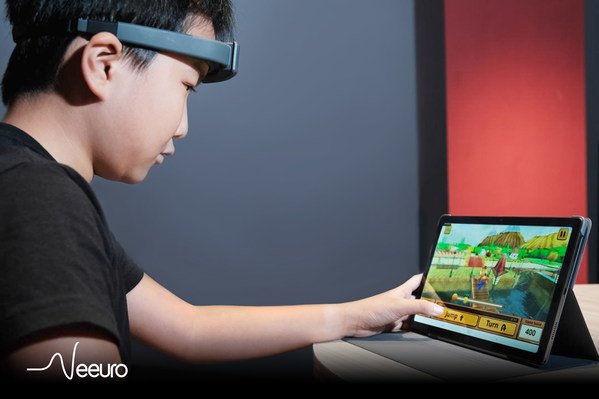Neeuro and Institute of Mental Health Launch Home-Based Attention Training Programme
06 December 2022 | Tuesday | News

Image Source : Public Domain
Cogo is a patented and scientifically validated digital therapeutic programme that aims to equip parents with an evidence-backed tool that is efficacious in improving their children's attention challenges.
The non-invasive ADHD intervention programme was the subject of a large scale randomised clinical trial funded by the National Medical Research Council (NMRC), led by Principal Investigator Associate Professor Lee Tih Shih, from Duke-NUS Medical School's Neuroscience and Behavioural Disorders programme, the results of which was published in 2019. Functional Magnetic Resonance Imaging (fMRI) scans of a subset of the children by Duke-NUS found positive post-training effects observed in brain areas associated with attention and task-orientation.
"ADHD is one of the most common conditions we see among young patients. While professional help may be necessary for some children, others with mild to moderate ADHD may benefit from a home-based intervention like the Cogo programme. After a decade of research, including clinical trials, results have shown positive results. Besides the convenience of being able to do this therapy at home and able to see improved concentration, I believe young children will also find the gameplay fun," says Dr Lim Choon Guan, Senior Consultant and Deputy Chief of the Department of Developmental Psychiatry at IMH.
Dr Alvin Chan, Neeuro's CEO and Co-Founder said, "The result of a collaboration among IMH, Duke-NUS Medical School and A*STAR's Institute for Infocomm Research that started over a decade ago is now being brought to market through Neeuro to complement ADHD treatment. With Cogo, parents are empowered to enable their children in the comforts of their own homes."
Based on the clinical findings, the recommended session is two to three times a week for 30-minute per session, and over the course of two to three months for a total of 24 sessions to get the best results.
Most Read
- How Does GLP-1 Work?
- Innovations In Magnetic Resonance Imaging Introduced By United Imaging
- Management of Relapsed/Refractory Multiple Myeloma
- 2025 Drug Approvals, Decoded: What Every Biopharma Leader Needs to Know
- BioPharma Manufacturing Resilience: Lessons From Capacity Expansion and Supply Chain Resets from 2025
- APAC Biopharma Review 2025: Innovation, Investment, and Influence on the Global Stage
- Top 25 Biotech Innovations Redefining Health And Planet In 2025
- The New AI Gold Rush: Western Pharma’s Billion-Dollar Bet on Chinese Biotech
- Single-Use Systems Are Rewiring Biopharma Manufacturing
- The State of Biotech and Life Science Jobs in Asia Pacific – 2025
- Asia-Pacific Leads the Charge: Latest Global BioSupplier Technologies of 2025
- Invisible Threats, Visible Risks: How the Nitrosamine Crisis Reshaped Asia’s Pharmaceutical Quality Landscape
Bio Jobs
- Sanofi Turns The Page As Belén Garijo Steps In And Paul Hudson Steps Out
- Global Survey Reveals Nearly 40% of Employees Facing Fertility Challenges Consider Leaving Their Jobs
- BioMed X and AbbVie Begin Global Search for Bold Neuroscience Talent To Decode the Biology of Anhedonia
- Thermo Fisher Expands Bengaluru R&D Centre to Advance Antibody Innovation and Strengthen India’s Life Sciences Ecosystem
- Accord Plasma (Intas Group) Acquires Prothya Biosolutions to Expand Global Plasma Capabilities
- ACG Announces $200 Million Investment to Establish First U.S. Capsule Manufacturing Facility in Atlanta
- AstraZeneca Invests $4.5 Billion to Build Advanced Manufacturing Facility in Virginia, Expanding U.S. Medicine Production
News











